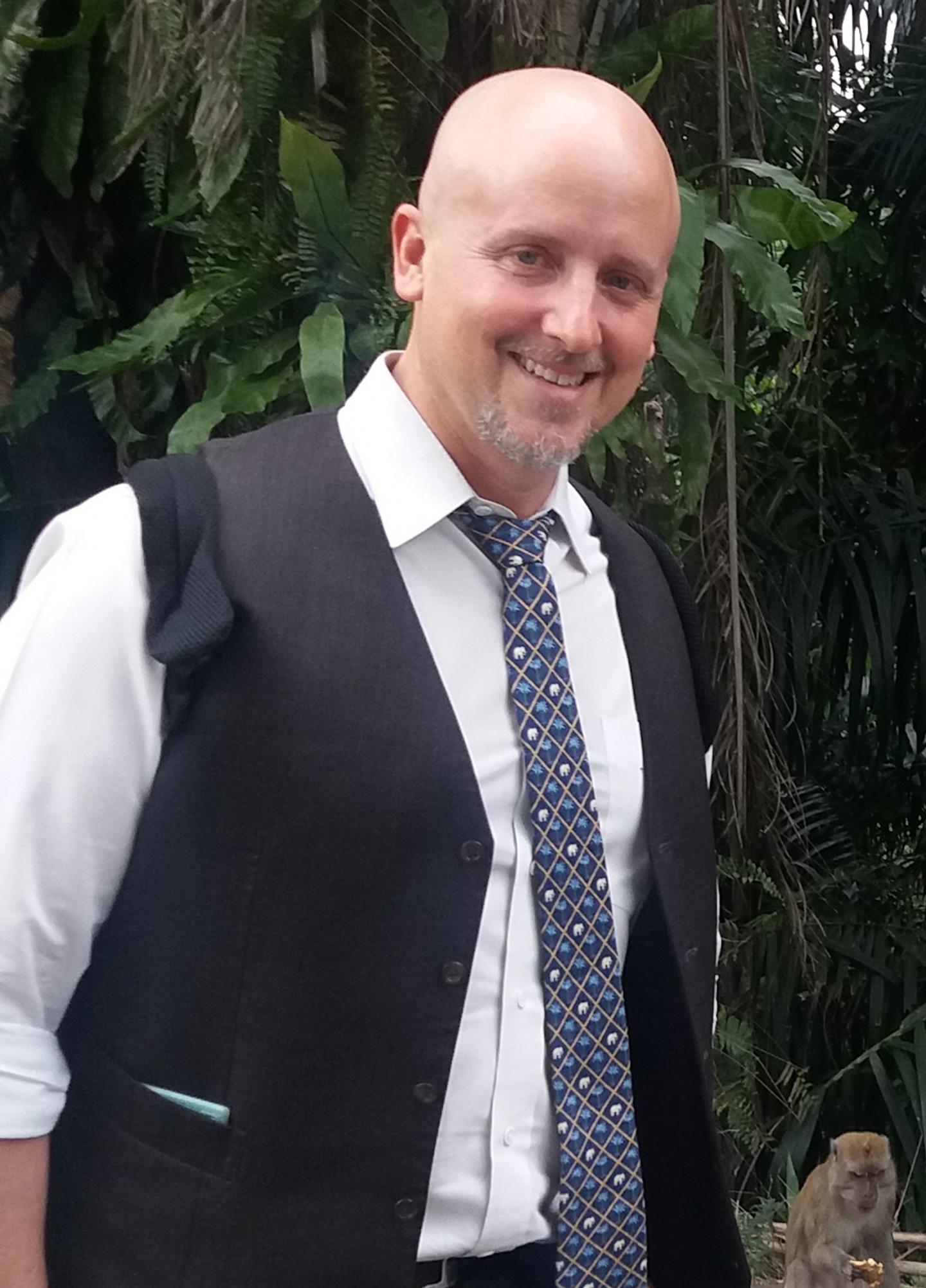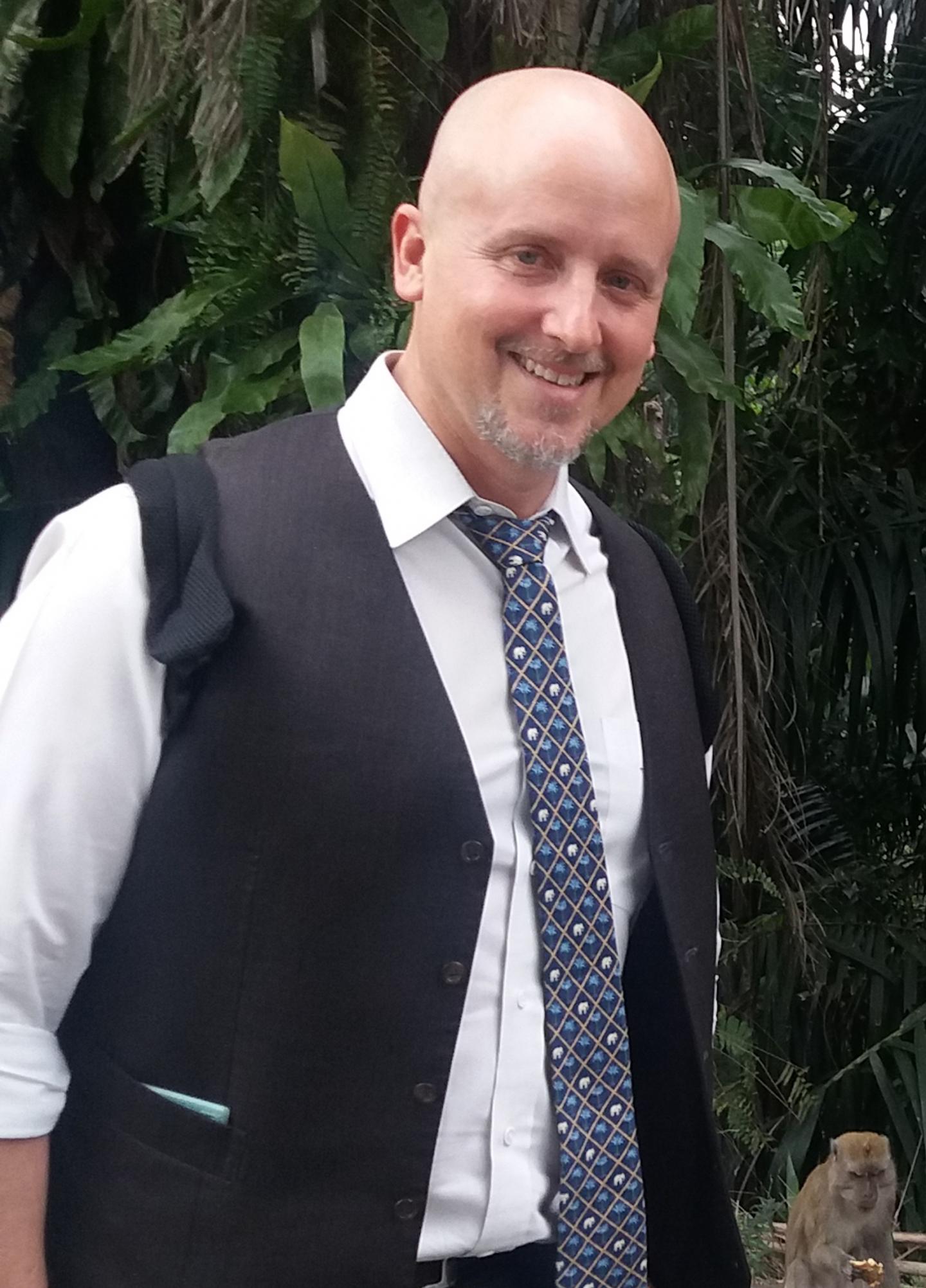
Credit: University of Otago
A breakthrough in monkey malaria research by University of Otago scientists encouraged the Bill & Melinda Gates Foundation to fund a special meeting in Dunedin recently.
A rare form of monkey malaria has been recently implicated in a spate of malaria cases in Malaysia. Professor Bruce Russell from the Department of Microbiology and Immunology at the University of Otago says scientists at the University of Otago, the National University of Singapore and University of Georgia (US) have discovered a way to potentially use this monkey malaria known as "Cynomolgi malaria" to help eliminate the relapsing form of human malaria (Vivax malaria), which is a significant burden for tens of millions of people throughout the developing world.
Cynomolgi malaraia parasites are found in the blood of wild populations of monkeys in South-east Asia and Cynomolgi has recently been detected infecting humans living close to forest areas.
"While this new form of malaria outbreak is certainly unwelcome, we are focused on the benefits of studying this zoonotic malaria as a way to help eliminate an important cause of relapsing human malaria, vivax," Professor Russell explains.
"We believe that this monkey malaria parasite will greatly help us in finding therapies to kill the liver stages, which are responsible for the relapsing nature of vivax malaria."
Vivax malaria is the most widely distributed, difficult to diagnose form of human malaria. Current efforts to develop new drugs and vaccines against vivax have been stymied by lack of an in vitro cultured method, he says.
However, fortunately the group of scientists from Otago, Singapore and the US have discovered a way to culture cynomolgi malaria parasites, which are almost identical to vivax malaria.
"The primate malaria we are using can be cultured and studied, whereas the important human malaria parasite vivax cannot be cultured," Professor Russell explains.
"The exciting prospect of developing cynomolgi as a model to study vivax malaria, spurred the Bill & Melinda Gates Foundation to fund a meeting in Dunedin this month, where one of the first successful culture systems were developed."
Professor Russell and Professor Dennis Kyle from the University of Georgia organised a diverse group of internationally-renowned malaria specialists (malariologists) from industry, government and academia to participate in the eight-day workshop and conference in Dunedin. The conference was completely funded by the Gates Foundation.
"This type of intenseive hands-on workshop encouraged a high-level of interaction, where a new international consortium of scientists emerged with a new tool to overcome current bottlenecks in vivax malaria research," Professor Russell says.
Aside from providing an exciting new way to understand vivax malaria, the new in vitro method significantly replaces preclinical testing of new drugs in animals, he says.
###
For more information, please contact:
Professor Bruce Russell
Department of Microbiology and Immunology
Tel 03 479 7082
Mob 027 434 5387
Email [email protected]
Liane Topham-Kindley
Senior Communications Adviser
Tel 03 479 9065
Mob 021 279 9065
Email [email protected]
Media Contact
Liane Topham-Kindley
[email protected]
64-212-799-065
@otago
http://www.otago.ac.nz
Original Source
https://www.otago.ac.nz/news/news/otago697529.html





